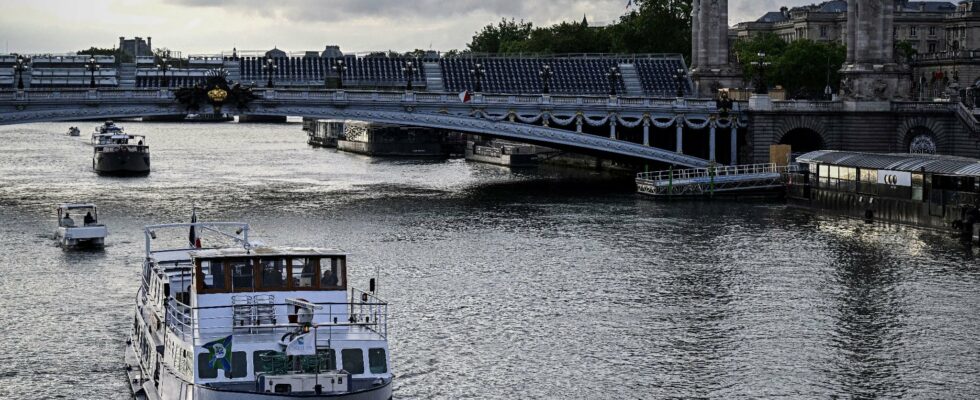The plunge into the Seine is still premature. As of June 16, a month and a half before the Paris Olympic Games, the river was still too polluted, with regard to the criteria for authorizing triathlon and open water swimming events, according to the results of published analyzes this Friday June 21.
“To date, the samples in the Seine do not correspond to the standards that we will have this summer,” commented duringa press briefing the regional prefect Marc Guillaume, who said he was “confident, with the Cojo (Organizing Committee), that the events will be held at the end of July and the beginning of August in the Seine”.
According to the weekly bulletin published by the Paris town hall and the Île-de-France prefecture, the bad weather in France in recent days explains concentrations well above the standards of the two fecal bacteria to authorize competitions in the river. “Water quality remains degraded due to an unfavorable hydrological and meteorological context: rain, high flow, little sunshine, temperatures below seasonal standards,” explain the local authorities.
“Discharges linked to rain”
“The high flow of the river, which does not promote good water quality, is the result of this very rainy weather,” they also recall. According to the graphs posted online, the level of concentration of fecal E.Coli bacteria was greater than 1,000 colony forming units (CFU)/100 ml, the threshold used by the international triathlon and open water swimming federations to authorize the holding tests, almost every day from June 10 to 16. It reached or even exceeded 5,000 units on June 11, 15 and 16. An increase which “is explained by upstream discharges linked to rain”, according to the town hall and the prefecture.
Star of these Olympics, the Seine will host the opening ceremony as well as the triathlon, swimming-marathon and paratriathlon events. But suspense remains over the holding of the Olympic events since the “test events” of August 2023 which had to be largely canceled due to insufficient water quality.
In the event of intense precipitation, untreated water – a mixture of rain and wastewater – can be released into the river, a phenomenon that retention works inaugurated just before the Games are intended to prevent. Plan B consists of postponing the tests for a few days, but not changing location.
